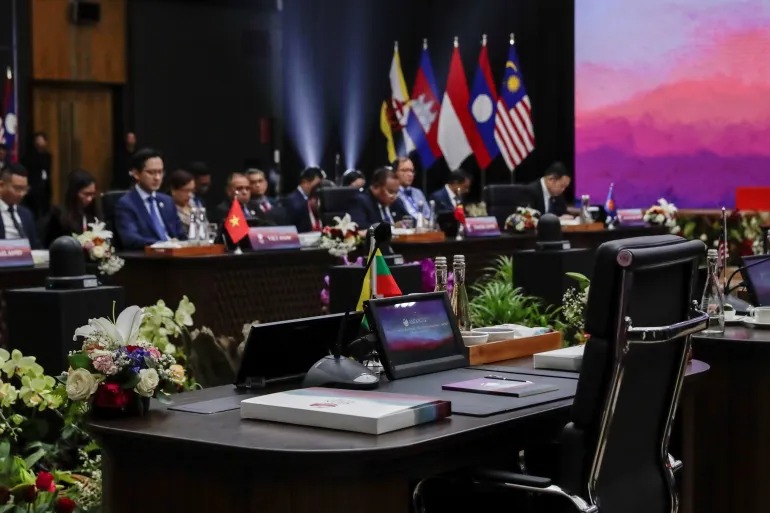In a startling development on the sidelines of the annual summit of the Association of Southeast Asian Nations (ASEAN) held in Jakarta, Malaysia has issued a resounding call for “strong” measures to be taken against Myanmar’s military junta. The ASEAN, a 10-member bloc, has been grappling with the consequences of the military coup that rocked Myanmar in 2021, and Malaysia’s direct plea for decisive action against the generals has injected fresh urgency into the discussions. The situation in Myanmar and the ongoing tensions in the South China Sea are testing the unity of ASEAN members, with experts viewing this summit as a “last chance” for the organization to demonstrate its capacity for meaningful intervention.
Malaysia’s Blunt Call for Action:
Malaysia’s Foreign Minister, Zambry Abdul Kadir, delivered a surprisingly candid message during the ASEAN summit. He stressed the need for robust actions against Myanmar’s military junta, underscoring that the junta’s actions had impeded the implementation of a peace restoration plan, more than two years after their seizure of power through a coup. Though he did not divulge the identities of other ASEAN members sharing Malaysia’s viewpoint, it is evident that the Malaysian government is growing impatient with the lack of progress in Myanmar. The ASEAN’s adoption of a “divide and rule game” by the junta has only fueled further concerns. Zambry emphasized that the junta must halt its civilian casualties and adhere to the previously agreed-upon five-point consensus.
ASEAN’s Struggle to Tackle Myanmar Crisis:
Senior General Min Aung Hlaing, the mastermind behind Myanmar’s 2021 coup, had consented to a five-point consensus proposed during a special ASEAN summit held two months after the coup. However, little progress has been made in implementing this agreement, and violence continues to escalate. The military’s alleged war crimes against civilians have deepened the crisis. This situation has put ASEAN in a precarious position, exposing the rift between authoritarian and democratic member nations. As ASEAN leaders gather for this year’s summit, data from the Assistance Association for Political Prisoners has grimly revealed that over 4,035 lives have been lost since the coup. Experts contend that this summit represents a pivotal moment for ASEAN to demonstrate its capacity to address the Myanmar crisis decisively.
China’s South China Sea Claims Add to ASEAN’s Challenges:
Apart from the Myanmar crisis, ASEAN also faces mounting challenges in the South China Sea dispute, with China’s assertive territorial claims causing unease among member states. China’s recent controversial map, depicting the vast majority of the South China Sea as its territory, has escalated tensions in the region. This assertion directly contradicts the claims made by ASEAN members such as Brunei, Malaysia, the Philippines, and Vietnam. The dispute over the South China Sea has further complicated the dynamics of the ASEAN summit, as the leaders prepare to engage with top officials from partner nations, including China and the United States. Notably, both the US and Chinese presidents will be absent from this year’s summit, with Vice President Kamala Harris representing the United States and Chinese Premier Li Qiang filling in for President Xi Jinping.
In conclusion, the ASEAN summit in Jakarta is unfolding against a backdrop of intense diplomatic pressure, as Malaysia’s bold call for strong measures against Myanmar’s junta reverberates throughout the region. While the ASEAN leaders grapple with the Myanmar crisis, the simmering South China Sea dispute adds an extra layer of complexity to their deliberations. The world will be closely watching to see if ASEAN can rise to the occasion and demonstrate its ability to effectively address these pressing regional challenges.















